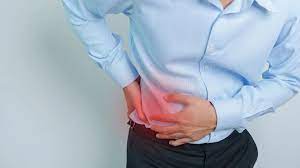Kidney stones are hard deposits made of minerals and salts that form inside your kidneys. Stones form when urine becomes concentrated, allowing minerals to crystallize and stick together. Passing kidney stones is typically a painful process, but the stones may cause no permanent damage if they’re recognized and treated promptly. Here is more information bout potential complications that can arise if they are left untreated:
Blocked Urine Flow
A kidney stone may get stuck in the urinary tract. When a stone lodges in a ureter, the tube that connects the kidney to the bladder, it creates a blockage. Urine backs up and causes pressure to build in the kidney. The buildup of urine behind the stone makes it difficult for the kidney to function correctly. Over time, this pressure and swelling might damage the kidney tissue. Prolonged blockage will reduce the kidney’s ability to filter waste from the blood, potentially leading to other complications, such as a decline in long-term kidney function.
Severe Pain
The pain associated with kidney stones may be very intense. The pain typically starts when a stone moves into the narrow ureter. This movement causes sharp, cramping pain in the back and side, just below the ribs.
The pain may radiate to the lower abdomen and groin area. Pain from a kidney stone may come in waves and fluctuate in intensity as the stone moves. The severity of the pain is not always related to the size of the stone; even a small stone might cause significant discomfort as it travels through the urinary tract.
This intense pain makes daily activities difficult. Other symptoms may include nausea and vomiting, which can accompany the pain as the body reacts to the stone. It is also typical to experience changes in urination, such as increased frequency, a persistent urge to urinate, or cloudy and foul-smelling urine.
Potential Infection
When a kidney stone blocks the flow of urine, it creates a stagnant pool where bacteria might grow. This situation may increase the risk of developing a urinary tract infection (UTI). A UTI that occurs with a kidney stone blockage is a serious medical condition. Symptoms may include:
- Fever and chills
- Painful urination
- Cloudy or foul-smelling urine
If the infection spreads from the urinary tract to the kidneys, it is called pyelonephritis. An infected kidney is a medical emergency that requires prompt attention to prevent bacteria from spreading into the bloodstream, a potentially life-threatening condition.
Low Mobility
The intense pain from a kidney stone can limit a person’s ability to move comfortably. Finding a position that provides relief is sometimes impossible, leading to restlessness and an inability to sit still. This constant discomfort and pain make it challenging to perform everyday tasks such as working, caring for family, or even walking. The need to manage this severe pain may require rest and medical intervention, further impacting a person’s mobility and everyday routine.
Get Treated for Kidney Stones
Ignoring the symptoms of kidney stones may lead to significant health problems. Addressing them promptly helps you avoid complications like blocked urine flow, severe pain, infection, and reduced kidney function. If you are experiencing symptoms of kidney stones, it is a good idea to speak with a healthcare provider. A urologist can offer a diagnosis and discuss treatment options.





Leave a Reply